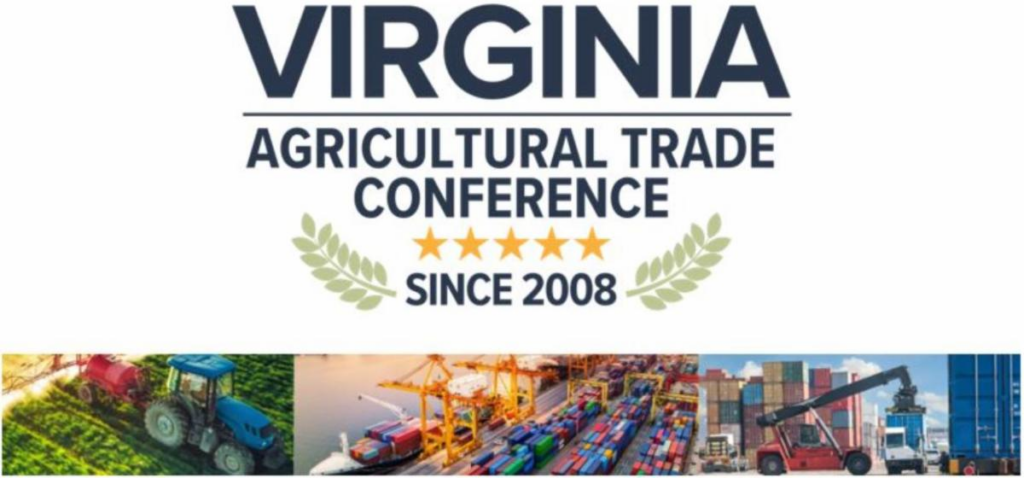In 2022, Virginia farmers who choose to use biosolids received approximately 115,000 tons on 41,600 acres of cropland, pasture, and forestland. In addition to providing an incredibly beneficial product for row crops, pastures, hay lands, and forests, biosolids use in agriculture provides an alternative to filling up Virginia’s landfill space and can be vital in restoring damaged soils.
Each year Virginia hosts the Virginia Agriculture Trade Conference to connect ongoing agriculture activities in Virginia with federal and other trade initiatives. VBC personnel attended the most recent conference held on November 1 in Richmond, which featured Virginia’s Governor, and Agriculture and Forestry leadership, and trade and academic leadership.
National Association of State Departments of Agriculture CEO Ted McKinney focused on the future of farming, leveraging a book about Responsible Business Without Trade-Offs, “The Power of AND.” It discusses the critical connection to the world of food, farming, electricity, and water. Climate smart agriculture by itself will not increase productivity, resilience and reduce emissions while feeding the growing world. Farmers, agricultural businesses and today’s students, tomorrow’s workforce must consider increased farm and food productivity and all the tools in the robust agricultural toolbox as well.
Governor Glenn Youngkin served as the Luncheon Keynote Speaker, highlighting the role of exports across Virginia and the world. As the chief marketer, Youngkin highlighted the work of his cabinet members and said “Virginia-made products are world class — and in fact, desired around the world.”
VBC’s efforts in 2022 were focused on doing good research with our partners – Virginia Tech and many municipal and state personnel – to understand the role of biosolids in carbon sequestration, productivity, and health and safety. These efforts will continue into 2024, when we look forward to sharing this work.

